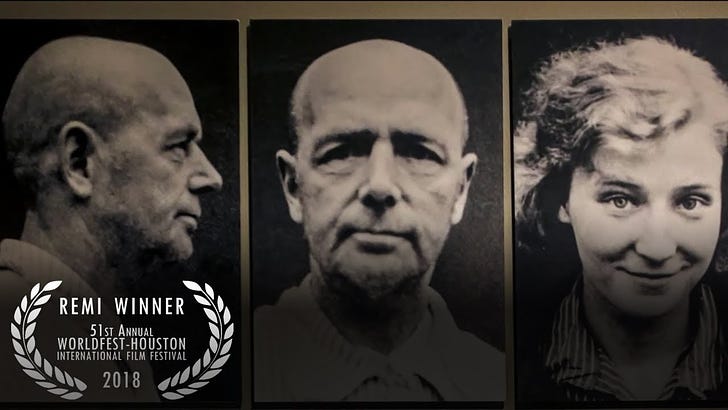Rude Awakening: What If the Crazies Have Been Running the Asylum for a While?
A weird anecdote from the past about an old friend and the so called patient rights
This story was inspired by a note from a reader who kindly shared my yesterday’s short article about Patients’ Code of Conduct in Milford, MA. The story is a weird tale about patients’ rights.
I have a personal friend. Or maybe it would be right to say that I had a friend as I have not spoken to him for years, and our common friends explicitly condemned me over my “COVID” views. But a very long time ago, he was really good to me. He was majorly good to me in a life-threatening situation, for which I am thankful. And before that, I had a crush on him for some reason that evades me now. He was a very broken boy, in the way artistic boys are often broken, I suppose it appealed to me at the time. As an antithesis to what I just said, he spoke of drugs fondly, and he was also extremely zionist and took pride in it—and whenever he spoke of “Arabs” he would usually call them “animals,” and his mouth would go slightly sideways with disgust. He was very uppity proud, that extremely complex, kind, cruel, broken friend of mine.
Anyway, the friend in question was a medical doctor with a pseudo-philosophical mind. He worked in ER. His soul’s thirst for philosophy was real, very real—and his intellectual ability was superb—but his philosophical avenue, as it often goes with sheltered people, was from the Machine. It was very unoriginal. As I see it now, unchallenged, he had internalized a lot of unoriginal talking points that were deliberately slipped into his born-to-be-beautiful being by the Machine, and he felt proud and superior to the simplefolk for knowing how to juggle those foreign talking points and also how to use them as an ego shield.
The point of this story is not anyone’s views on COVID, not the tragedy of Israel / Palestine, and not even the conundrum of the machinized establishment learned men. The story is really about power and patient rights.
As an ER doc, my friend would sometimes have to deal with junkies, homeless people, and so on. And so, according to him, one time when he was in an emergency vehicle “helping” a crazy and likely tripping homeless guy, he was compelled to mess with the patient’s head, for fun. Because my friend was messed up in the head himself, he found it amusing to make crazy faces at the tripping homeless guy in his care. Perhaps the fact that he was no stranger to drugs made him feel like he was messing with a peer—a dejected peer with no rights but still a peer? I don’t know but my friend was just telling this story like it was party fun.
And from the perspective of the homeless guy, who would believe him if he said that his ER doc was making crazy faces at him? He would probably have less luck being believed than even a vax-injured patient who goes to a mainstream hospital for care. They would probably just up the antipsychotics and make sure he takes them—because it’s crazy to think that a doctor would do such a thing!
And while we are mostly “respectable citizens” here, that weird story about sums up the situation with patients’ rights. At the time, America was better than other places in terms of being able to sue for abuse—not that it would help the homeless guy. But even the respectable citizens’ rights went out of the window and into the toilet in 2020.
How does the toilet connect to the window, you may wonder? Hey, in 2024, anything is possible, it just does. In a world where the mafia running the “establishment” views us, sacred souls, as “raw material” for their vampiring—and no longer hides it—it just does!
A note to readers: If you are in the position to do so, I very much encourage you to become a paid subscriber or donate. I love you in any case, but it helps A LOT, and I am in a dire need to get more donations and paid subscribers while keeping my posts free. Thank you from my heart for your support!






Speaking as someone intimately familiar with government bureaucracy. The lunatics have been running the asylum for quite some time.
The part of this article I like best is that you can recognize and accept both the good and the bad in your friend. Being able to love someone including (not despite) their flaws is sadly uncommon these days, and it is a joy to read your work because you still do. Seeing you express that, I hope, inspires your readers to know that they can too.